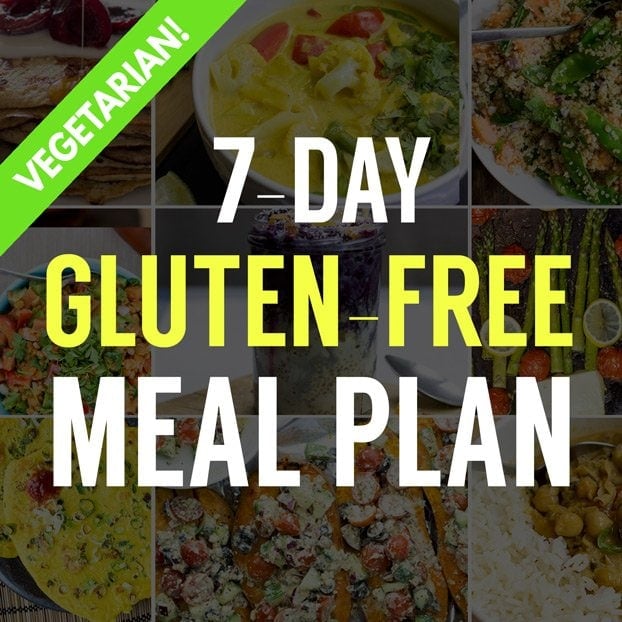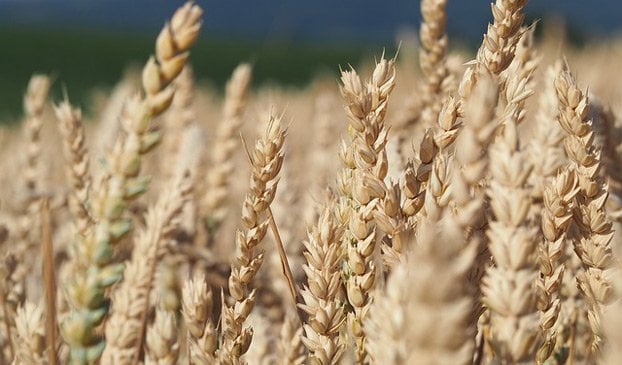Enter your email & we’ll send it to your inbox. Plus, get great new recipes from us every week! By submitting this form, you consent to receive emails from Hurry the Food Up. And if you are looking for even more inspiration, you can check out all our gluten-free veggie pages right here. Though, since we don’t know what your motives are (do you have celiac disease, for example? Did you read somewhere gluten is dangerous?), I’d like to give you a quick overview on the current discussion on the gluten-free diet.
The Gluten-Free Diet – A Quick Intro
I’m sure by now we’ve all met someone who claims how good he or she felt after going gluten-free. But is there an actual science behind it, or is it just a fad? The gluten-free diet was primarily a treatment for celiac disease and non-celiac gluten sensitivity, but now more and more people are adopting this diet in the hopes of living a healthier lifestyle. So, should you go gluten-free or not? I’ll try to give some clarification. First you’ll find the main arguments in favour of a gluten-free diet. Most of these arguments come from the New York Times bestseller “Wheat Belly” by Dr. William Davis, who says “modern wheat” is the “perfect, chronic poison” (1). Then it’s also time for the pro grain camp to speak, led by the Health School of Harvard. As you may have guessed, they rather think the gluten-free diet is a fad. And lastly I’ll tie it all together in my conclusion. Sound ok? Good, let’s start.
The Basics: What is Gluten?
Gluten is a term for a family of proteins that can be found in grains like wheat, barley and rye. When you add water to wheat flour for example, you’ll get an elastic dough with the ability to rise nicely. Also, its good taste and low price make it very popular for baked goods and pasta products (wiki). Gluten became problematic due to genetic modification and modern processing. The wheat people ate about 70 years ago is very different from the wheat you’re eating today. New processing techniques now make it possible to produce refined wheat at a very low cost. At first sight that seems a great improvement. But the downside is that refined wheat has the nutritious parts of the grain stripped off (bran and germ), leaving only the most starchy bit, the endosperm (wiki). In the 1960s new crossbreeds of wheat were introduced to improve harvests (wiki). Unfortunately, these genetic modifications also changed the protein and nutrient composition, making it a much worse option than traditional wheat. For example the amount of minerals like zinc, copper, iron and magnesium has decreased by 19-28% (6).
2. Pro gluten-free (Dr. Davis + Followers): Wheat makes you fat and causes many other serious diseases
“A Gluten-Free Diet can be effective for losing weight.” According to Dr. William Davis modern wheat is not just less nutritious but it can also cause many uncomfortable effects in your body. The most interesting effect of all is being overweight. Dr. Davis states wheat is the main cause of obesity in modern society. He especially makes wheat responsible for belly fat (the reason why he called his book “Wheat Belly”). According to him, certain compounds in wheat cause appetite stimulation and the release of chemicals similar to endorphins that get you addicted to bread and pasta products. On top of that, wheat, even whole grain, leads to exaggerated rises in blood sugar. Constantly having high blood sugar can lead to major diseases and also to a lot of belly fat Davis says. Davis states by removing grain and substituting it with healthy whole foods he helped thousands of his patients to significantly lose weight (Book, chapter 5). “There are more dangers to a wheat based diet than just obesity.” Going gluten-free could also help to fix or ease these symptoms:
Digestive issues Diarrhea High blood pressure Diabetes Stool inconsistency Stomach pain Bloating Fatigue, tiredness Depression Autism Schizophrenia
The list is basically created by the findings of Dr. Davis. He states that gluten doesn’t necessarily have to be the cause, but that processed wheat can be problematic for many reasons not connected to gluten. What about whole grains? Davis mentions studies from the 80s that show replacing white processed wheat with whole wheat led to a reduction of colon cancer, heart disease and diabetes. He criticizes that government authorities concluded from these results whole grain is good for you. Instead what happened was that a very bad product (white flour) was replaced by a less bad product (whole wheat) which just reduces the problem, but doesn’t eliminate it. So, according to Dr. Davis it doesn’t matter what kind of whole grain wheat you eat, be it home-baked, stone-ground or organic. Since it’s still wheat it still triggers high blood sugar, belly fat, bad cholesterol particles in the blood, inflammation and so on. Listening to him, you’ll probably die very soon if you keep eating grain (Book, chapter 5).
3. Contra Gluten-Free (Harvard + Followers): Whole Grains are healthy
Surely there are many studies and other dieticians supporting Dr. Davis. However, at the same time the camp supporting whole grains (not processed wheat!) is still big, eg. the Harvard School of Public Health (1). In 2011 Harvard created the Healthy Eating Plate, “a specific guide to healthy eating based on the best science available,” according to Dr. Anthony Komaroff, a professor of medicine at Harvard Medical School. This guideline reserves one quarter of your daily intake for whole grains (Harvard). Is whole grain really unhealthy? Harvard mentions in various articles that good quality whole grain foods, eaten in reasonable amounts, had significant health benefits like:
reduced risks for type 2 diabetes reduced risk of heart disease reduced risk of cancer better digestion healthy long term weight management (1, 2)
It is very obvious that the people from Harvard believe in the beneficial effect of whole grain on health, which is why they recommend you to make whole grains a constant staple in your diet. Is it true that people lose 10, 20 or even 50 or more pounds by eliminating wheat from the diet? Julie Jones from the St. Catherine University thoroughly checked the arguments made by Dr. Davis his book “Wheat Belly”. She says that studies and testimonials document rapid weight loss, especially when diets are low in carbohydrates. By suggesting eliminating wheat and keeping your daily carb intake at around 20%, the gluten-free diet by Dr. Davis is a classic plan low in carbohydrates and high in whole foods (like Paleo and Atkins for example). These kinds of diets have been proven to promote rapid weight loss in the medium term. Still, in the long run they’re difficult to maintain, Jones says. So, according to Jones the reason for weight loss success is likely not the elimination of gluten, but reducing carbohydrates and increasing whole foods. Is gluten-free a fad? Dr. Daniel Leffler, an assistant professor of medicine at Harvard Medical School says “Yes, it’s a popular diet of the moment, but it really does seem to provide some improvement in gastrointestinal problems for a segment of the population” (Harvard). In other words, yes it makes sense for people with celiac disease and non-celiac gluten sensitivity. But eating good quality whole grain is beneficial for the rest of the population and therefore not necessary to go gluten-free (Harvard).
Here is what I think
If you want to know for sure if you have a gluten intolerance (celiac disease or gluten sensitivity), it’s best to see a doctor and get tested. That should be obvious. There is a lot of fighting between the camps, with both citing their favourite studies, and this makes it virtually impossible for a normal person to take a decision based on evidence. There’s just too much out there. If you have any of the symptoms mentioned by Dr. Davis and you don’t know what else to do to get rid of them, you could try going gluten-free for 30 days and see what happens. Our meal plan can be a great start. Still, even if those symptoms go away, you can’t be certain it was the gluten that caused it. Products with gluten also contain so many other nutrients that might have an effect on you. Likewise the foods that you eat instead of bread and pasta can have a positive impact, especially if you eat more veggies. Please keep this in mind before taking rash decisions. Alright, I’ve done the best I can to inform you about the gluten-free diet. Now it’s up to you! If you want to do it vegetarian style, our 7 day meal plan can definitely help you out with that.
And lastly, what about the gluten-free – weight loss connection?
A healthy gluten-free diet plan surely can help you to lose weight. Again: probably not because wheat is the problem, but more because you’re restricting your diet and because of its replacements: So, if you don’t start eating processed gluten-free junk food, then you are automatically forced to eat mostly natural, one ingredient foods. There is no harm in avoiding gluten since you can get all the necessary nutrients in other foods. Still, that’s the trick: if you go gluten-free you need to make sure that you switch to a well balanced diet and not just cut out wheat (both camps can agree on this by the way). That’s why we created this meal plan. Enjoy!



